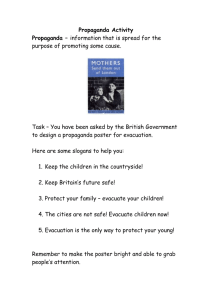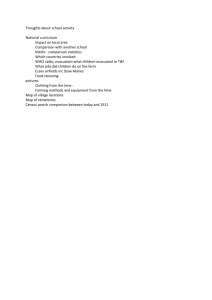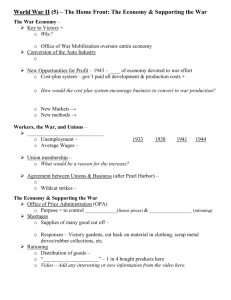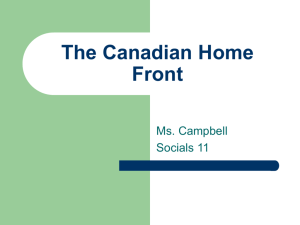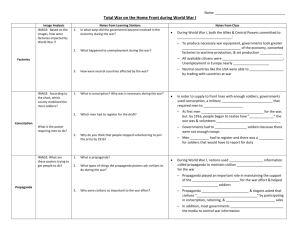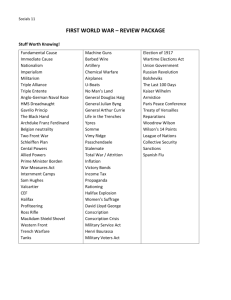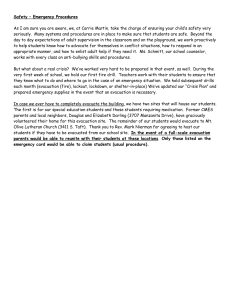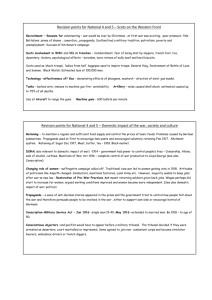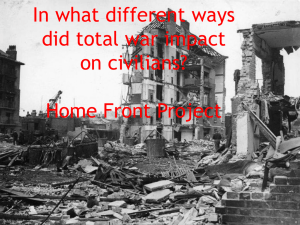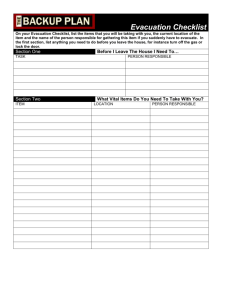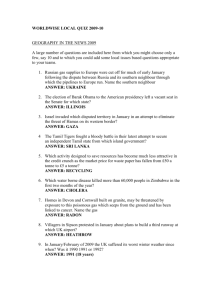Lesson 75: The effects of the Second World War
advertisement
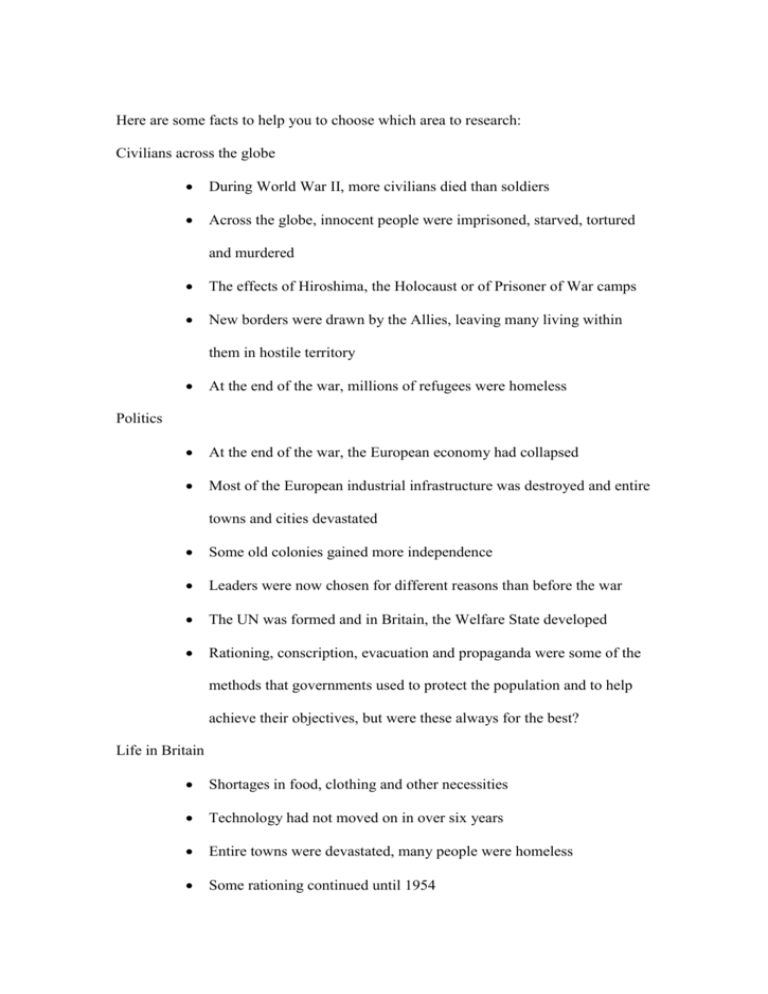
Here are some facts to help you to choose which area to research: Civilians across the globe During World War II, more civilians died than soldiers Across the globe, innocent people were imprisoned, starved, tortured and murdered The effects of Hiroshima, the Holocaust or of Prisoner of War camps New borders were drawn by the Allies, leaving many living within them in hostile territory At the end of the war, millions of refugees were homeless At the end of the war, the European economy had collapsed Most of the European industrial infrastructure was destroyed and entire Politics towns and cities devastated Some old colonies gained more independence Leaders were now chosen for different reasons than before the war The UN was formed and in Britain, the Welfare State developed Rationing, conscription, evacuation and propaganda were some of the methods that governments used to protect the population and to help achieve their objectives, but were these always for the best? Life in Britain Shortages in food, clothing and other necessities Technology had not moved on in over six years Entire towns were devastated, many people were homeless Some rationing continued until 1954 Women now working, not necessarily wanting to give up after the war Conscription and the break-up of families The effects of evacuation Propaganda and censorship – did this keep up morale or did people feel that they were being patronised?
